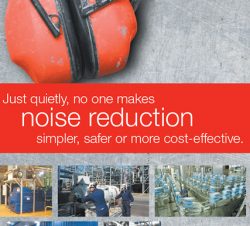Having seen some spectacular client results, we are clearly big fans of Marketing Automation as part of the Inbound Marketing toolkit.
The question is though: is this approach to marketing right for ALL businesses?
Or more to the point… from where you sit reading this… is it right for YOUR business?
First up, here’s my view on it, based on our own experience as a digital marketing agency.
While we have always been great at Inbound, I have to tell you that the addition of Marketing Automation has absolutely changed what we do.
Big time.

Marketing Automation is a force multiplier, as it gives us the technology and methodology to help our clients to:
- Increase engagement — so that potential buyers understand the real value our clients offer, thus making them a more preferred supplier.
- Increase conversions — so that more visitors go onto email lists for ongoing nurturing, to keep your brand top-of-mind.
- Find Sales Qualified Leads — so that sales teams are talking to the RIGHT prospects.
- Increase the efficiency of a sales team — so they can get more done and make more sales.
And that’s all before morning tea!
So yes, in my view, Marketing Automaton is pretty darn good. And that’s why we are investing in continually increasing our expertise.
But of course, that doesn’t mean it suits every business.
There are a few things you need to think about when looking at Marketing Automation as an option, to determine whether you’re likely to see a high ROI from it.
1. Is Marketing Automation suitable for transactional sales?
There may not be much value for Marketing Automation for transactional products, where the decision is made quickly and where price is the main driver.
For example…
I recently needed a new cable to plug my daughter’s phone into her stereo.
Sure, I did some investigating to understand the difference between the $3.00 version and the $9.00 version. But it was a quick read.

After browsing a couple of forum pages and a product review, (and remembering the old adage “You buy on price and you pay for it twice” from previous buying mistakes), I went for the $9.00 one.
Job done.
It was a quick transaction. And her problem is solved.
I wasn’t going to download an eBook or checklist to buy a 3.5 mm audio cable, so there would have been little value for a vendor in trying to nurture a relationship with me — other than having a process in place to bring me back if I abandoned the shopping cart part-way through.
Don’t misunderstand me. Even with a tiny transactional sale, people still go through the Buyer’s Journey:
- Having awareness of their problem or objective
- Considering their options
- Deciding which offering is the best value.
It is just that it happens very quickly.
Sometimes within minutes.
So if yours is a transactional sale, then there may not be a case for Marketing Automation.
2. Is Marketing Automation suitable for considered purchases? Yes!
If you’re selling something that is a considered purchase, it’s an entirely different matter.
This is where your potential buyers are going to take longer to progress through the Buyer’s Journey — thus giving you more opportunity to:
- Engage with them, to
- Tell your story, and
- Show your competitive value.

Marketing Automation is great for this.
Here’s why:
With a product/service like yours, your potential buyers are looking around… researching… figuring out their options… wondering how to solve their problem… and who to buy the solution from.
Here’s the research on this in the B2B sector, looking at how people buy:
- 81% of buyers want to read and research BEFORE they will talk to a potential vendor
- 62% want information that speaks to their specific needs or pain points
- 43% want content to be more educational than promotional.
To get this information, they will look at your website.
But then what?
- Sure, you can look at Analytics, and you’ll know that there have been visitors to your website.

But without Marketing Automation, you won’t know:
- Who are these people?
- What are they looking for?
- What problems do they have that you can solve?
- Whether they are the decision-maker
- ...and a host of other important stuff that your sales team needs to know
A Marketing Automation system lets you find out all this.
Furthermore… (Yes, he cried, there’s more!)
Once they engage with you in a micro-conversion, you are beginning to build their profile.
This is all part of a well structured Inbound Marketing campaign. To learn more about this we recommend that you read our free eBook by clicking the link below.
And as you get to know more about who they are, you’ll have the info you need to be able to invite them back for repeat visits, thus developing a relationship and strengthening your position when compared to your competitors.
And THAT, dear reader, is not to be sneezed at.
It can put money in the bank!
3. Do your numbers stack up for Marketing Automation?
Clearly, for Marketing Automation to be profitable for your business, the numbers need to add up.
You have to weigh up:
- What you are going to spend, when compared to
- The sales you are likely to generate.
In terms of what you are going to spend, you might be concerned that my opinion is one-eyed and biased. After all, we are a digital agency, so yes, I’m probably going to look at this through ‘agency eyes’.
But I’ve got the microphone.
So, let me tell you what I have learned about this in my short 23 years in marketing.
In all that time, I have NEVER found that ONE amazing, remarkable, deserves-a-statue-in-a-park person who can:
- Write good, lean website code
- Write persuasive, engaging marketing copy
- Design website and landing pages with great UX
- Analyse data and see, (I mean really SEE), what it reveals about user behaviour and opportunity
- Develop an Inbound strategy that pulls people through the sales funnel
- Write compelling and persuasive emails
- Manage AdWords so that clicks cost less and convert more
- Manage the automation dashboard to set up smart forms, smart content and smart lists (and everything else!)
- Work with salespeople to develop criteria for leads — and follow them up; AND
- Manage the whole thing, pull it together and makes sure it is cohesive.
Seriously.
One ‘marketing person’ to do all this? And do it well?
It isn’t going to happen.
So, if you are serious about Inbound Marketing and Marketing Automation, it follows that you will need to engage a digital agency that has this range of disciplines and expertise in-house.
And yes, that will require some expenditure to cover it.
As an example, at the time of writing, you can see on our pricing page that monthly digital marketing packages range from $4,950 upwards. That’s what it takes to pay all those smart people to get on with the job and to do it at such a high standard.
Then, you have your outlay for your Marketing Automation platform.
We’ve chosen to be a HubSpot agency, because it’s a platform that offers such great value for our clients, and does so much for their businesses. But there are others out there that you can investigate.
At the time of writing, that’s about $1,050 a month, depending on the HubSpot plan you choose.
So…
On a monthly plan, you are looking at $71K a year. On a bigger plan, it can be $100K.
That’s enough to make you suck the tiles out of the ceiling, right?
But let’s do the numbers. And consider the Lifetime Value of each customer to see if it adds up to a reasonable business case.
I have a spreadsheet that helps potential clients to work out whether Crockford Carlisle is a good fit for them — but it is more detailed than we have time for here.
So right now, if you want to grab a pencil and the back of an envelope, here are the basics that you need to consider.
You can put your own numbers in, but here’s an example where:
- Your average sale is $3,000, and
- Your customers buy from you every month.
We’ll also assume that you are good at your job, they like you, and they stick with you for three years:
- Average sale $ 2,000
- Frequency/year 12 times
- Length of relationship 3 years
- Lifetime Value ($1,500 X 6 X 4) $72,000
To keep the figures conservative, let’s assume that your Marketing Automation strategy:
- Takes three months to gain traction, and after that
- It only brings in an average of just one new customer a month
- Before you see the growth you're looking for

Yes, I know those figures are very low. But it is ALWAYS best to be conservative when figuring out your projections, right?
So, in a year, you will have brought in a Lifetime Value of $72,000 X 9, which is $648,000.
You outlaid about $71,000 for the agency and for Hubspot to generate that $648,000, so you are kicking some big goals.
As I said, you’ll need to do your own numbers. And if you really want to drill into it, then I have a spreadsheet I can share with you that gives a realistic view on how it might go — especially with the time it’s likely to take before you start getting some traction.
Want to dig a little deeper into Marketing Automation?
By this point, you might have done your ‘back of the envelope’ sums and run screaming from the room.
But if your numbers look OK and you’d like to explore some ideas for using Marketing Automation to grow your business, then please give Crockford Carlisle a call.
We can talk about the process and look at a detailed spreadsheet. We can also look at your competitors, your current traffic/conversion setup, and where you see the opportunities are for growth.
I can promise that you won’t get some slick ‘agency sales pitch’ when you call. We only want relationships that last — where we can deliver value and be a profitable partner for happy clients.
There’s no point in ‘talking you into it’ when there isn‘t a good fit — and then having the wheels fall off down the track.
So yes, our conversation will be pragmatic and down-to-earth.
Our number is (07) 3891 3800, and we assist clients all over Australia, so we can help you no matter where you are located.
If, once we look at things, there is a business case, you can decide whether to take it further. But that will, of course, be up to you.



















